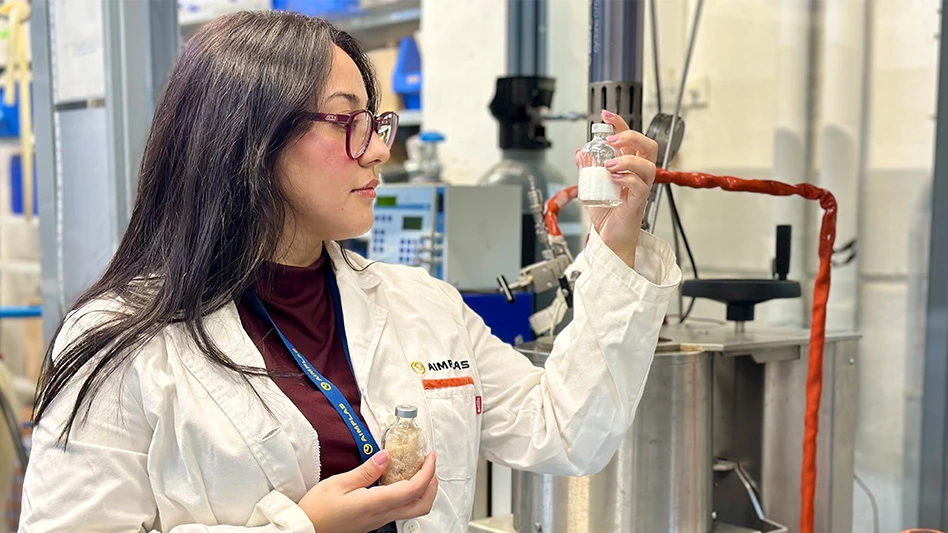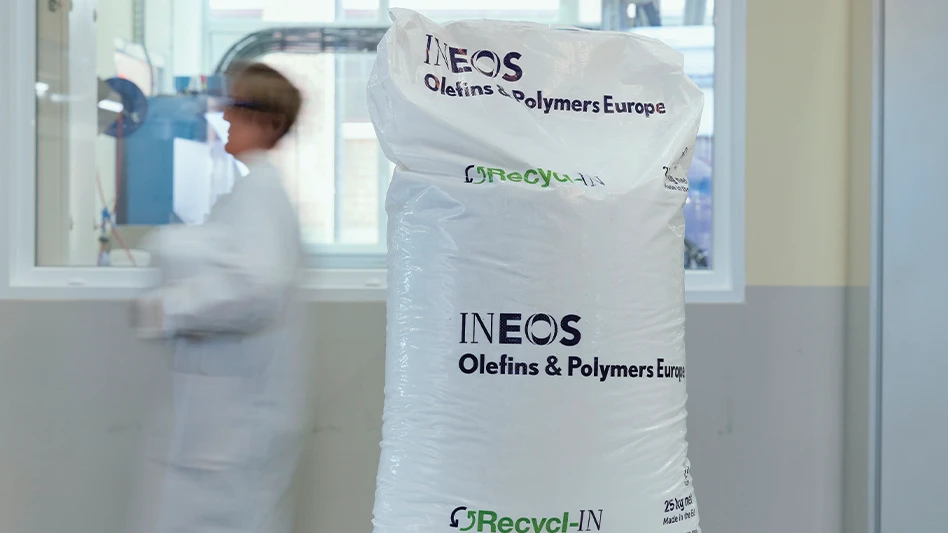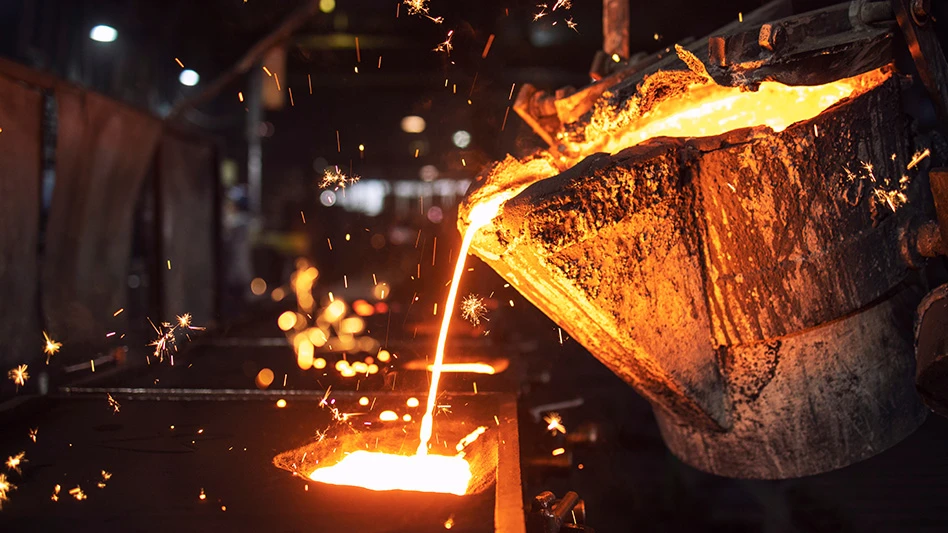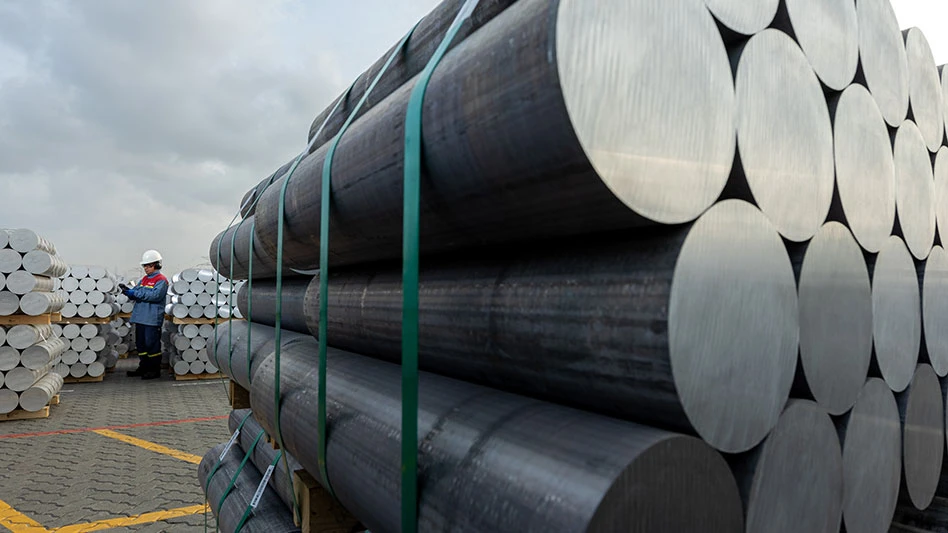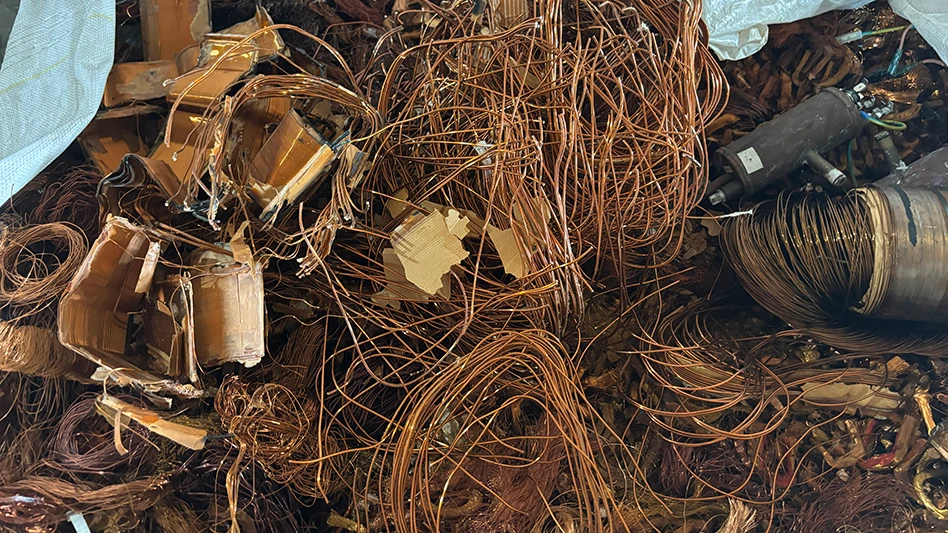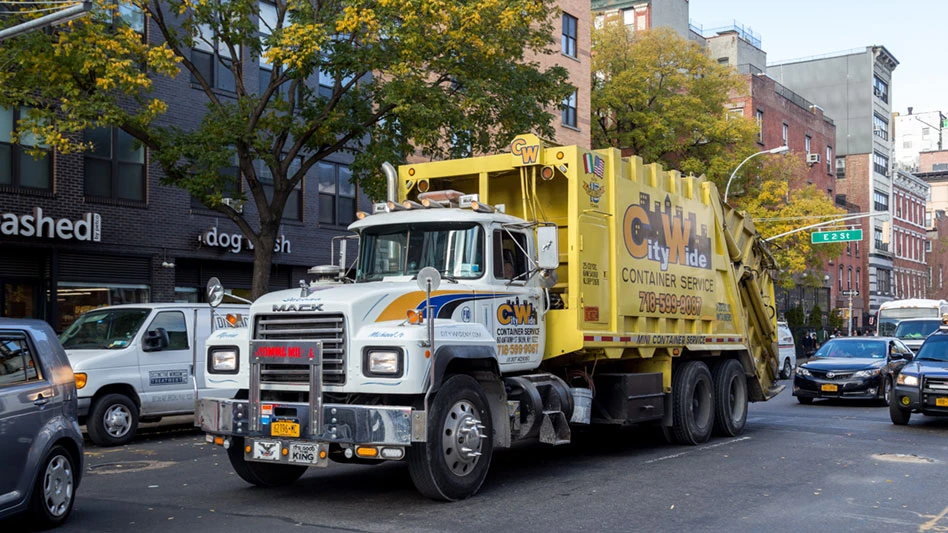
Photo by DeAnne Toto
Panelists during the Spotlight on Aluminum at the Recycled Materials Association (ReMA) Conference & Exposition this May in San Diego discussed the developing market for vesper, a new recycled aluminum grade that ReMA's Nonferrous Division approved and ReMA's board of directors will vote on in July. The grade was developed in partnership with Novelis Inc., an aluminum recycling and rolling company headquartered in Atlanta.
Vesper is comprised of aluminum sheet, extrusion and/or plate grades (wrought aluminum) segregated from the zorba or twitch shredded aluminum grades. The material must not contain more than 1 percent free magnesium, 1 percent free zinc and 0.50 percent analytical iron. It also cannot contain more than 1 percent nonmetallics. It must be free of excessively oxidized material, air bag canisters and sealed or pressurized items. As in the case of all ReMA scrap specifications, any variations are to be agreed upon by the buyer and seller.
The new grade will be important in meeting growing demand for recycled aluminum, with session moderator Gabriella Vagnini, managing editor of Aluminum Market Update with CRU Group, saying more than $10 billion in secondary aluminum production investments have been announced. She added that recycled metal consumption will need to increase by 40 percent to meet expected demand for aluminum semifinished products by 2029.
Gary Gallo, senior manager, end-of-life recycling, at Novelis, said that by 2030, implied wrought alloy content in twitch will rise significantly as more aluminum-intensive vehicles reach end of life. “Mixed aluminum makes it challenging for consumers like Novelis, producers like Novelis, to use that in the most fully circularized and optimized way. And what it points to is the need for segregation,” he continued. “And this is a path that Novelis started on about five years ago in earnest.”
Gallo noted that all the new capacity that has been announced in the U.S. will be based on recycled content. “There's only so much [recycled aluminum] out there,” he added, which necessitates making better use of twitch.
Twitch is recycled, but it goes into secondary cast alloys, he said. “Once you take a hood from an F-150, and you shred it and you send it away to make, say, A380 [aluminum alloy] out of it, we can never get that scrap back,” Gallo continued. “The silicon content goes through the roof.”
Separating wrought from cast aluminum had not been a priority for technology providers until recently as demand for wrought scrap is increasing.
“It’s not just Novelis looking for this material; every wrought producer is trying to do the same thing we are globally,” Gallo said.
Neil Byce, owner of CW Metals and vice chair of ReMA, noted that the association’s specifications are created by recyclers in collaboration with industry. “There are a 100 other specs out there for different products that we all trade in. Vesper is the newest one, and it is probably the most interesting that we've done because it's so cutting edge. And what else is interesting is that it's one of the first moments that marks this true collaboration between folks like Ford and Novelis and recyclers all coming together to try to create something that is workable. And we even included those that are manufacturing the equipment out on the show floor; they were part of this conversation to ensure that what it is that we are specifying they can create.”
Daniel Freiberg, a research engineer at Ford Motor Co., said the automaker began using an aluminum body that sits on top of a steel frame for the F-150 in 2014. “The key reason for doing that was to increase fuel economy, and then, on the F-150, it also increased capability. We take weight out of the body, beef up the frame and increase towing capacity, hauling capability, so it's great for the customer.”
He said other Ford vehicles, such as the Navigator and Expedition, share a similar structure, using five different types of aluminum alloys engineered to meet certain performance metrics. Ford sorts the scrap generated at its stamping plants into four bins by alloy, which are recycled in a closed-loop system, Freidberg said. To reduce the carbon footprint of its vehicles further, in addition to its manufacturing scrap, Ford realizes more end-of-life scrap, such as vesper, will need to be incorporated into the aluminum coils that it uses to manufacture its vehicles.
Gallo said Novelis hired him 11 years ago to manage Ford’s closed-loop recycling program. “The vast majority of the scrap that's generated at Ford's stamping plants comes back to either Novelis or Arconic,” he said. “Ford did that because they knew that if they were to introduce all that scrap into the market on an ad hoc basis, it would collapse the market.”
Despite the closed-loop arrangement, he said, a significant amount of other scrap generated by Ford or by tier stampers finds its way to scrap processors to prepare and return to Novelis.
Byce said attendees heard a great deal about closed-loop recycling and export controls throughout the conference, describing these concepts as existential threats to recyclers. “What makes that scary is the uncertainty and the fact that someone may be dictating it to you, and that it's not inclusive, and it doesn't feel collaborative.” He added that through his conversations with Ford and Novelis, he had the sense that they genuinely wanted to collaborate with recyclers.
As recyclers start to prepare material to the vesper specification, Byce said patience will be needed as further sorting twitch presents unique challenges. “Not all twitch is created equal. Sorting out that cast is difficult,” he said. “This is new to everyone, and everyone needs a good dose of patience.”
Latest from Recycling Today
- SHFE trading expansion focuses on nickel
- Maverick Environmental Equipment opens Detroit area location
- International Paper completes sale of global cellulose fibers business
- Building a bridge to circularity
- Alton Steel to cease operations
- Nucor finishes 2025 with 14 percent earnings decline
- Algoma to supply Korean shipbuilder
- Improving fleet maintenance management across multiple locations
